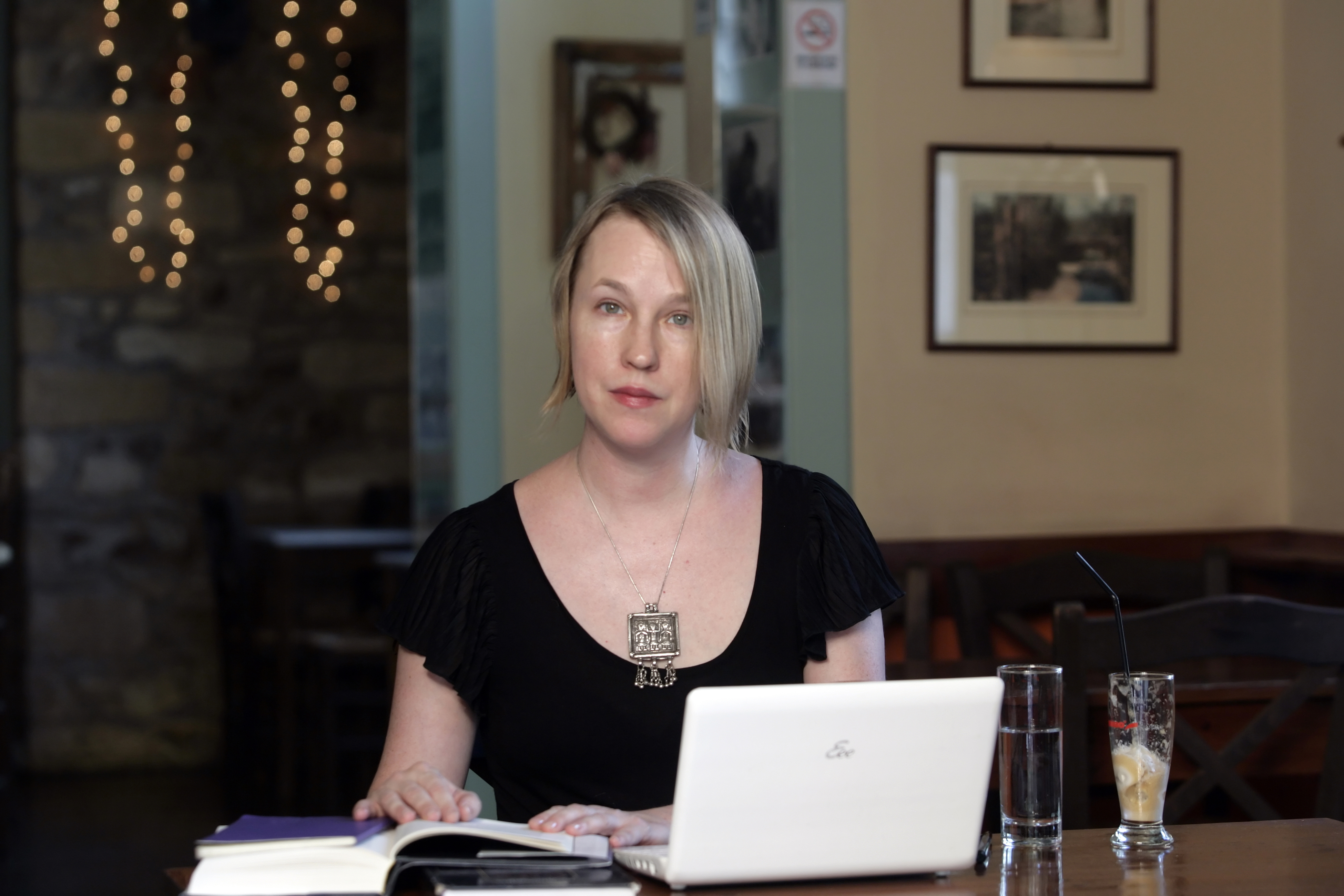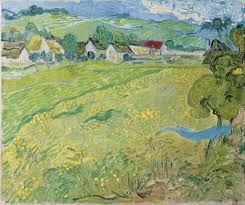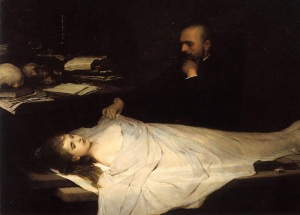
Yone Noguchi and Joaquin Miller: How curiously they would gaze on us today!
This latest Hot 100 List is mostly comprised of very brief quotes from poems in BAP 2015—now the most collectible volume in David Lehman’s “best” anthology series, due to its Yi-Fen Chou controversy.
The “molecular” display presents fragmentary glimpses of “hot,” and we must say it is an interesting way to see the poets—can we know them by a few of their poetry molecules?
We may be living, without knowing it, in the Age of the Fragment. The best prose-poems often produce dull fragments. That’s the bad news. The good news is that fragments from dull prose-poems may intimate genius; if future ages can only read the fragments we produce today, some lucky poets, who wrote mediocre prose poems, may be hailed as geniuses. Since the lyric of unified metrical accomplishment is really not our strength today, the Fragment may be our era’s ticket to lasting fame.
Is it the goal of the fragment to be fragmentary? Is it ever the goal of the poem to be fragmentary? Are there different types of fragments? Is there not a rush to completion by every poem itself that makes even a fragment seem complete, beyond even the knowledge of the poet?
Getting to know David Lehman on Facebook…he loves rhyme, especially the rollicking sort, and we believe those sorts of poems in BAP are his selections. Lehman is also a ‘free-speech-er;’ he sanctions the racy; the BAP poems often strive to be popular in the attention-getting sense, which I suppose is admirable—or not.
The non-poem exceptions in the Scarriet list are recent remarks by the hot Alexie, Lehman, Perloff, and Mary Karr. We are proud to include the quotation from Perloff—who chose to break her silence on the “racist Avant-garde” controversy by addressing Scarriet—on Facebook!—as she admitted her book Unoriginal Genius and its final chapter on Goldsmith’s Traffic may have had a part in bringing on the racist label. Are we not interested in my discussion of Yoko Tawada in Unoriginal Genius, Perloff asked, because she’s Asian-German, rather than Asian-American? “What xenophobia!”
The question we asked Perloff was, “Is the non-creative nearly racist by default?” The question was not meant to put Perloff on the spot; it was as much about the current race-conscious atmosphere as it was about Perloff, or the avant-garde. Were an avant-garde poet to tweet “red wheel barrow beside the white chickens” enough times, just think what might happen. And speaking of Williams (and Pound) and their Imagiste schtick: Scarriet, in its five year assault on Avant-Garde Modernism as a reactionary clique of white men, should get some credit for opening up this whole discussion.
Scarriet has written of Yone Noguchi (1875-1947) in the context of Imagism ripping off haiku, the importance of the Japanese victory in the Russo-Japanese war, and Noguchi’s important contacts: Yeats, Hardy, Symons, and John Gould Fletcher—the Arkansas poet who, along with Ford Maddox Ford, was the connecting link between Pound’s circle and the equally reactionary and highly influential circle of New Critics—the group of men who brought us the Writing Program Era—and its “difficult” Modernist flavor.
Scarriet, which trailblazes often, found the secret to the Red Wheel Barrow poem: WC Williams had a brother, Edgar, who married the woman he loved, Charlotte (Bill married her sister). “So much depended on” this: and Ed can be found in “red,” Charlotte in “chickens” and “white” symbolizes the bride.
But here we go. Controversy and hot go together; let’s get to the hot list. No mention of awards this time. Enjoy the list—and the poetry.
1. Yi-Fen Chou –“Adam should’ve said no to Eve.”
2. Derrick Michael Hudson –“Am I supposed to say something, add a soundtrack and voiceover?”
3. Sherman Alexie –“I am no expert on Chinese names…I’d assumed the name was Chinese.”
4. David Lehman –“Isn’t giving offense, provoking discussion…part of the deal?”
5. Terrance Hayes –“Let us imagine the servant ordered down on all fours”
6. Marjorie Perloff — “Scarriet poses the question…I have so far refrained from answering this and related questions but perhaps it is time to remind Scarriet and its readership…”
7. Amy Gerstler –“…live on there forever if heaven’s bereft of smell?”
8. Jane Hirshfield — “A common cold, we say—common, though it is infinite”
9. Mary Karr — “[John Ashbery is] the most celebrated unclothed emperor…an invention of academic critics…the most poisonous influence in American poetry”
10. Mary Oliver — “June, July, August. Every day, we hear their laughter.”
11. Rowan Ricardo Phillips — “It does not not get you quite wrong.”
12. Lawrence Raab — “nothing truly seen until later.”
13. Patrick Phillips — “Touched by your goodness, I am like that grand piano we found one night”
14. Dan Chiasson — “The only god is the sun, our mind, master of all crickets and clocks.”
15. Willie Perdomo — I go up in smoke and come down in a nod”
16. Katha Pollitt — “Truth had no past. It was wordless as water, a fall of shadow on stone.”
17. Tim Seibles — “That instant when eyes meet and slide away—even love blinks, looks off like a stranger”
18. Marilyn Hacker — “You happened to me.”
19. Charles Simic — “I could have run into the street naked, confident anyone I met would understand”
20. Louise Glück — “…the night so eager to accommodate strange perceptions.”
21. Laura Kasischke — “but this time I was beside you. …I was there.”
22. Michael Tyrell — “how much beauty comes from never saying no?”
23. Susan Terris — “cut corners fit in marry someone”
24. Cody Walker — “Holly round the house for a Muhammad Ali roundhouse.”
25. A.E. Stallings — “the woes were words, and the only thing left was quiet.”
26. Valerie Macon — “coats fat over lean with a bright brush”
27. Jennifer Keith — “…bound to break: One the fiction, one the soul, the fact.”
28. Ed Skoog — “Its characters are historians at the Eisenhower Library.”
29. Terence Winch — “I’m in the emergency room at Holy Cross hoping all is not lost.”
30. Chana Bloch — “the potter may have broken the cup just so he could mend it.”
31. Natalie Diaz — “Today my brother brought over a piece of the ark”
32. LaWanda Walters — “And we—we white girls—knew nothing.”
33. Raphael Rubinstein — “Every poet thinks about every line being read by someone else”
34. R.S. Gwynn — “How it shows, shows, shows. (How it shows!)”
35. Robin Coste Lewis — “how civic the slick to satisfied from man.”
36. Andrew Kozma — “What lies we tell. I love the living, and you, the dead.”
37. Melissa Barrett — “—lines from Craiglist personal ads”
38. Mark Bibbins — “He’s Serbian or something, whole family wiped out”
39. Chen Chen — “i pledge allegiance to the already fallen snow”
40. Patricia Lockwood — “How will Over Niagara Falls in a Barrel marry Across…on a Tightrope?”
41. Ron Padgett — “Old feller, young feller, who cares?”
42. Bethany Schultz Hurst — “Then things got confusing for superheroes.”
43. Natalie Scenters-Zapico — “…apartments that feel like they are by the sea, but out the window there is only freeway.”
44. Sandra Simonds — “Her little girl threw fake bills into the air.”
45. Donna Masini — “Even sex is no exit. Ah, you exist.”
46. Dora Malech — “paper mane fluttering in the breeze of a near miss, belly ballasted with…kisses”
47. David Kirby — “Pets are silly, but the only world worth living in is one that doesn’t think so.”
48. Ross Gay — “One never knows does one how one comes to be”
49. Meredith Hasemann — “The female cuckoo bird does not settle down with a mate. Now we make her come out of a clock.”
50. Madelyn Garner — “working her garden…which is happiness—even as petal and pistil we fall.”
51. Wendy Videlock — “like a lagoon, like a canoe, like you”
52. Erica Dawson — “I knocked out Sleeping Beauty, fucking cocked her on the jaw.”
53. Hailey Leithauser — “Eager spills eel-skin, python, seal-leather, platinum and plate, all cabbage, all cheddar.”
54. Monica Youn –“the dead-eyed Christ in Pietro’s Resurrection will march right over the sleeping soldiers”
55. Tanya Olson — “Assless Pants Prince High-Heels Boots Prince Purple Rain Prince”
56. Jericho Brown — “But nobody named Security ever believes me.”
57. Danielle DeTiberus — “In a black tank top, I can watch him talk about beams, joists…for hours”
58. Rebecca Hazelton — “My husband bearded, my husband shaved, the way my husband taps out the razor”
59. Dana Levin — “I watched them right after I shot them: thirty seconds of smashed sea while the real sea thrashed and heaved—”
60. Evie Shockley — “fern wept, let her eyes wet her tresses, her cheeks, her feet. the cheerlessness rendered her blessed”
61. Alan Michael Parker — “Rabbi, try the candied mint: it’s heaven.”
62. Aimee Nezhukumatahil — “I wonder if scientists could classify us a binary star—”
63. D. Nurske — “Neils Bohr recites in his soft rapt voice: I divide myself into two persons”
64. Afaa Michael Weaver — “inside oneness that appears when the prison frees me to know I am not it and it is not me.”
65. Marilyn Chin — “She was neither black nor white, neither cherished nor vanquished, just another squatter in her own bamboo grove”
66. Candace G. Wiley — ” My dear black Barbie, maybe you needed a grandma to tell you things are better than they used to be.”
67. Joanna Valente — “Sometimes, at night, I wish for someone to break into me—”
68. Jeet Thayil — “There are no accidents. There is only God.”
69. Kate Tempest — “It gets into your bones.”
70. Alice Notley — “To take part in you is to die is why one dies Have I said this before?”
71. Eileen Myles — “Well I’ll be a poet. What could be more foolish and obscure.”
72. Major Jackson — “When you have forgotten the meaningful bop”
73. Dawn Lundy Martin — “And Olivia, the mouth of his children from the mouth of my vagina.”
74. Kiki Petrosino — “We sense them shining in our net of nerves.”
75. Jennifer Moxley — “How lovely it is not to go. To suddenly take ill.”
76. Juliana Spahr — “There is space between the hands.”
77. Ada Limón — “just clouds—disorderly, and marvelous, and ours.”
78. Kevin Young — “I want to be doused in cheese and fried.”
79. Dodie Bellamy — “what is it have I seen it before will it hurt me or help me”
80. Juan Felipe Herrera — “Could this be yours? Could this item belong to you? Could this ticket be what you ordered, could it?”
81. Joy Harjo — “The woman inside the woman who was to dance naked in the bar of misfits blew deer magic.”
82. Saeed Jones — “In the dark, my mind’s night, I go back”
83. Sarah Arvio — “The new news is I love you my nudist”
84. Desiree Bailey — “how will I swim to you when the day is done?”
85. Rachael Briggs — “Jenny, sunny Jenny, beige-honey Jenny”
86. Rafael Campo — “We lie and hide from what the stethoscope will try to say”
87. Emily Kendal Frey — “How can you love people without them feeling accused?”
88. James Galvin — “Where is your grandmother’s wedding dress? What, gone?”
89. Douglas Kearney — “people in their house on TV are ghosts haunting a house haunting houses.”
90. Jamaal May — “how ruined the lovely children must be in your birdless city”
91. Claudia Rankine — “What did he just say? Did she really just say that?”
92. Donald Platt — “Someone jerks his strings. He can’t stop punching.”
93. Denise Duhamel — “it’s easy to feel unbeautiful when you have unmet desires”
94. Jane Wong — “A planet fell out of my mouth”
95. Derrick Austin — “Will you find me without the pink and blue hydrangeas?”
96. Dexter L. Booth — “The head goes down in defeat, but lower in prayer”
97. Catherine Bowman — “From two pieces of string and oil-fattened feathers he made a father.”
98. Jessamyn Birrer — “Abracadabra: The anus. The star at the base of the human balloon.”
99. Julie Carr– “Can you smell her from here?”
100. Mary Angela Douglas — “music remains in the sifted ruins”



















